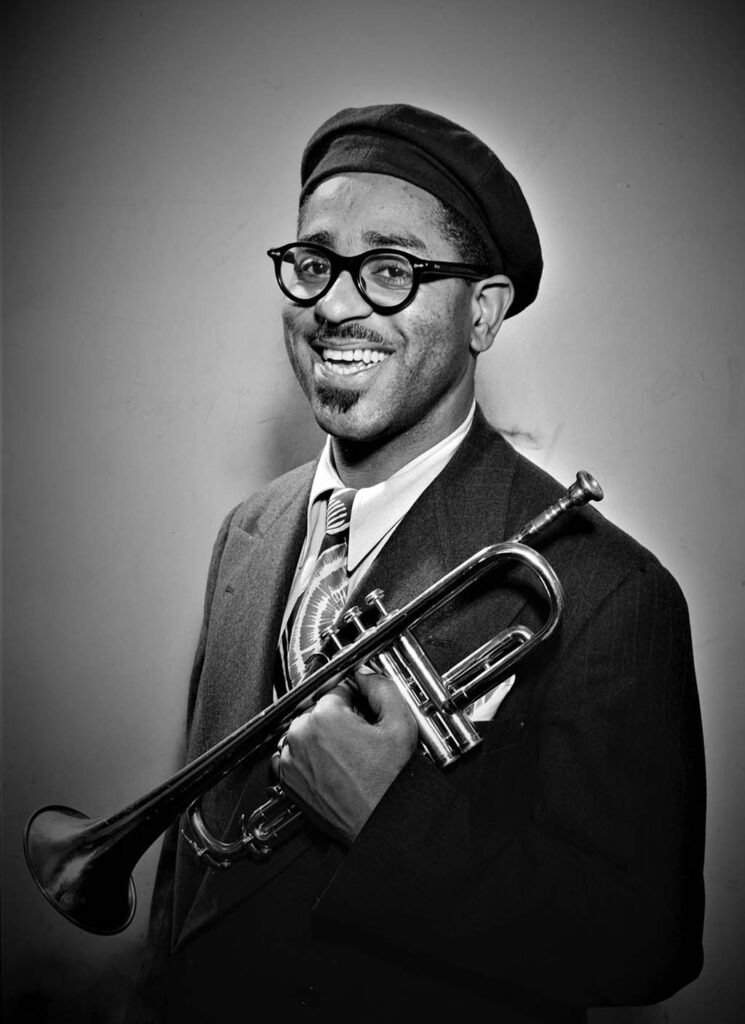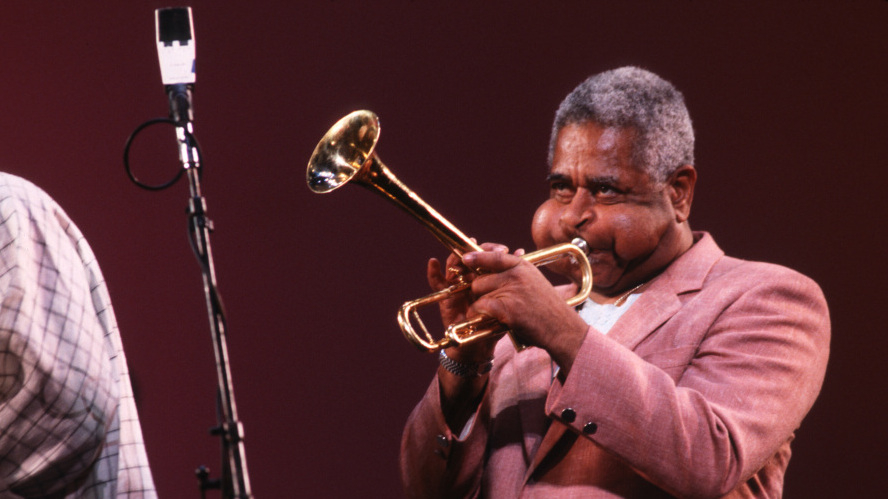John Birks “Dizzy” Gillespie was a pioneering figure in the world of jazz, renowned for his groundbreaking contributions as a trumpeter, composer, and bandleader. Born on October 21, 1917, in Cheraw, South Carolina, Gillespie emerged as one of the leading figures of the bebop movement, leaving an indelible mark on the history of jazz.
Raised in a musical family, Dizzy Gillespie began his musical journey at a young age, playing the piano and trumpet. His early exposure to music, particularly the vibrant sounds of the local marching bands, set the stage for his future in the world of jazz.
In the late 1930s, Gillespie moved to New York City, where he quickly became immersed in the burgeoning jazz scene. His talent and distinctive style on the trumpet caught the attention of prominent musicians, and he soon found himself collaborating with some of the era’s greats, including Teddy Hill and Cab Calloway. It was during this time that Gillespie developed his innovative approach to playing the trumpet, characterized by his virtuosic technique and mastery of complex musical improvisation.
The 1940s marked a pivotal period in Gillespie’s career, as he joined forces with saxophonist Charlie Parker to spearhead the bebop movement. Together, they revolutionized jazz by introducing intricate harmonies, rapid tempos, and advanced improvisational techniques. The iconic recordings of Gillespie and Parker, such as “Salt Peanuts” and “A Night in Tunisia,” stand as timeless classics that continue to influence musicians across genres.
As a bandleader, Gillespie formed his own big band, the Dizzy Gillespie Orchestra, in the late 1940s. The orchestra became a platform for showcasing his compositional skills, and it featured some of the most talented musicians of the time. Gillespie’s compositions, like “Manteca” and “Groovin’ High,” showcased his ability to blend Afro-Cuban rhythms with bebop, further expanding the horizons of jazz.
Throughout his career, Dizzy Gillespie was not only a musical innovator but also a charismatic entertainer known for his trademark bent trumpet, puffed-out cheeks, and playful stage presence. Beyond his musical contributions, he played a crucial role in promoting jazz globally through international tours, fostering cultural exchange, and influencing musicians worldwide.
Dizzy Gillespie’s impact on jazz extended beyond the stage; he was a mentor to numerous musicians, and his educational efforts helped preserve and pass on the jazz tradition. Gillespie’s achievements were recognized with numerous awards, including honorary doctorates, the Kennedy Center Honors, and the Presidential Medal of Freedom, highlighting his enduring legacy in the world of music.
Dizzy Gillespie continued to perform and inspire until his passing on January 6, 1993. His legacy lives on through his recordings, compositions, and the countless musicians who have been influenced by his groundbreaking contributions to the world of jazz.


Comments are closed